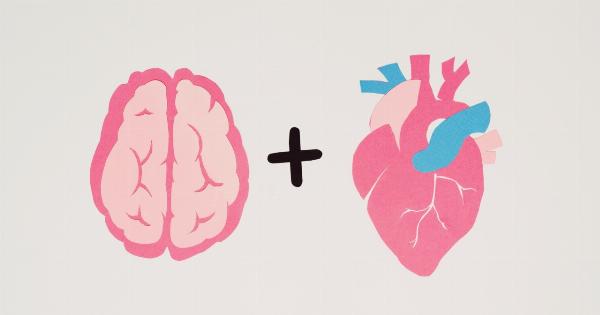Heart diseases, kidney disorders, and vascular issues are some of the most common chronic ailments. According to the World Health Organization (WHO), heart diseases and stroke account for the major cause of death around the world.
To prevent these health issues, healthcare professionals generally recommend a balanced lifestyle, including exercising, adopting a healthy diet, and eliminating unhealthy habits like smoking and alcohol consumption. However, there are several drugs in the market that help maintain the health of your heart, vessels, and kidneys. This article discusses some of these drugs.
: 1. Renin-Angiotensin System (RAS) Blockers
The Renin-Angiotensin System (RAS) blockers are a group of drugs that help keep your heart, kidneys, and blood vessels healthy. They work by inhibiting the renin-angiotensin system that regulates blood pressure and fluid balance in the body.
ACE inhibitors, angiotensin II receptor blockers (ARBs), and renin inhibitors are the three main classes of RAS blockers. These drugs are generally prescribed for people with high blood pressure, heart failure, and kidney problems.
: 2. Calcium Channel Blockers
Calcium channel blockers are a group of drugs that help treat high blood pressure, angina (chest pain), and arrhythmias (irregular heartbeats).
They work by blocking the entry of calcium into the smooth muscle cells lining the blood vessels and heart, thus relaxing the muscles and reducing the workload on the heart. Calcium channel blockers also improve blood flow to the heart, reduce the risk of heart attacks and strokes, and protect the kidneys by decreasing the amount of protein in the urine.
: 3. Statins
Statins are a group of drugs that help lower cholesterol levels in the blood. They work by inhibiting the enzymatic activity of HMG-CoA reductase, an enzyme that plays a crucial role in the synthesis of cholesterol.
By reducing the cholesterol levels, statins lower the risk of heart attacks, strokes, and other cardiovascular diseases. Statins may also help protect the kidneys by reducing the inflammation and oxidative stress associated with kidney damage.
: 4. Diuretics
Diuretics are a group of drugs that help reduce the amount of salt and water in the body. They work by increasing the urine output and decreasing the volume of blood fluid, thus reducing the workload on the heart.
Loop diuretics, thiazide diuretics, and potassium-sparing diuretics are the three main classes of diuretics. They are generally prescribed for people with high blood pressure, heart failure, and kidney disease.
: 5. Beta-Blockers
Beta-blockers are a group of drugs that help reduce the workload on the heart and reduce blood pressure. They work by blocking the action of epinephrine and norepinephrine, hormones that increase the heart rate and blood pressure.
Beta-blockers also help prevent arrhythmias (irregular heartbeats) and reduce the risk of heart attacks. Beta-blockers are generally prescribed for people with heart failure, high blood pressure, and arrhythmias.
: 6. Angiotensin Receptor-Neprilysin Inhibitors (ARNIs)
ARNIs are a relatively new class of drugs that combine the benefits of ACE inhibitors and neprilysin inhibitors. They work by blocking the action of the two enzymes that regulate blood pressure and fluid balance in the body.
ARNIs are generally prescribed for people with heart failure and reduced ejection fraction. These drugs have been found to reduce mortality and hospitalization rates in people with heart failure.
: 7. Sodium-Glucose Co-transporter 2 (SGLT2) Inhibitors
SGLT2 inhibitors are a group of drugs that help lower blood sugar levels in people with type 2 diabetes. They work by blocking the action of the SGLT2 protein, which is responsible for reabsorbing glucose in the kidneys.
By inhibiting the SGLT2 protein, these drugs promote the excretion of excess glucose in the urine, thus reducing the blood sugar levels. SGLT2 inhibitors have also been found to reduce the risk of heart failure and kidney disease in people with type 2 diabetes.
: 8. Erythropoietin-Stimulating Agents (ESAs)
ESAs are a group of drugs that help stimulate the production of red blood cells in the bone marrow. They are generally prescribed for people with anemia, a condition where the body does not produce enough red blood cells.
Anemia is a common complication of chronic kidney disease. By stimulating the production of red blood cells, ESAs help improve the oxygen supply to the body tissues and organs and reduce the risk of heart disease and other complications.
: 9. Vasodilators
Vasodilators are a group of drugs that help dilate the blood vessels and improve blood flow to the heart, kidneys, and other parts of the body. They work by relaxing the smooth muscles lining the blood vessels.
Nitroglycerin, hydralazine, and minoxidil are the three main classes of vasodilators. These drugs are generally prescribed for people with heart failure, angina, and high blood pressure.
: 10. Aspirin
Aspirin is a widely used drug that helps prevent blood clots and reduce the risk of heart attacks and strokes.
Aspirin works by inhibiting the enzymatic activity of cyclooxygenase (COX), an enzyme that plays a crucial role in the synthesis of prostaglandins and thromboxanes, two types of signaling molecules that promote inflammation and blood clotting. By inhibiting the COX enzyme, aspirin reduces the inflammation and blood clotting, thus reducing the risk of heart disease and stroke. However, aspirin may not be suitable for everyone and can have some side effects, including bleeding.
: Conclusion
Heart diseases, kidney disorders, and vascular issues are some of the most common chronic ailments that affect people around the world.
Along with a balanced lifestyle, several drugs are available in the market that help maintain the health of your heart, vessels, and kidneys. RAS blockers, calcium channel blockers, statins, diuretics, beta-blockers, ARNIs, SGLT2 inhibitors, ESAs, vasodilators, and aspirin are some of the most commonly prescribed heart, vessel, and kidney protective drugs.
However, before taking any of these drugs, you should consult your doctor and discuss the risks and benefits.





























